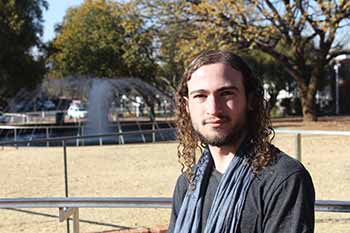Latest News Archive
Please select Category, Year, and then Month to display items
25 September 2024
|
Story Jacky Tshokwe
|
Photo Supplied
 Prof Louise Cilliers, University of the Free State (UFS) research fellow and former head of the Department of Classical Studies.
Prof Louise Cilliers, University of the Free State (UFS) research fellow and former head of the Department of Classical Studies.
Prof Louise Cilliers, one of our esteemed research fellows and former head of the Department of Classical Studies, has been awarded the prestigious 2024 UJ Translation Prize. Prof Cilliers received this accolade for her exceptional Afrikaans translation of the renowned Greek poet Konstantinos Kavafis' poetry collection, Van Alexandrië na Ithaka, published by Naledi.
Konstantinos Kavafis (1863-1933) is considered one of the most important literary figures in modern Greek poetry, known for his reflective and often philosophical poems that explore themes of history, identity, and human experience. In Van Alexandrië na Ithaka, Prof Cilliers brings the essence of Kavafis’ work to Afrikaans readers, carefully preserving the poet’s rich symbolism, historical depth, and emotional nuances.
Prof Cilliers has had a distinguished academic career, having served as head of the Department of Classical Studies. Her expertise in classical languages and literature, coupled with her passion for translation, made her an instrumental figure in making classical texts more accessible to a broader audience. This award is not only a testament to her scholarly achievements, but also to her dedication to the cultural and literary enrichment of the Afrikaans language.
The UJ Prize for Translation honours outstanding translations of literary works into any of South Africa’s official languages. Prof Cilliers' recognition continues the department's proud tradition of excellence in classical scholarship and language studies.
We extend our heartfelt congratulations to Prof Cilliers for this remarkable achievement and are excited to celebrate her continued contributions to the field of classical studies and translation.
About the UJ Translation Prize
The University of Johannesburg Translation Prize celebrates the best translations of literary works into any of South Africa’s official languages. It aims to promote high standards of literary translation and showcase the importance of bringing international literary voices into the local context through translation.
Young language Einstein set for Europe
2017-07-10

Willem Carel Brink will be studying in France and Italy
for the next two years as part of his master’s
degree programme
Photo: Rulanzen Martin
German, French, English and even Latin are just a few of the languages known by Kovsies’ own language guru, Willem Carel Brink.
This arty junior lecturer and 2015 Senate and Dean’s medal recipient at the Department of Afrikaans and Dutch, German and French at the University of the Free State (UFS) received the Erasmus-Mundus bursary to conduct his master’s degree under the Erasmus Mundus Master en Cultures Littératures Européennes (CLE) title. He departs for Europe in September. “It is a structured interdisciplinary study which focuses on European literature, culture and other aspects,” Willem says. The subject for his thesis will be determined during the duration of the course.
Two-year course under Erasmus Mundus
The Erasmus CLE master’s is a two-year course which is presented by five partner universities in France, Senegal, Italy and Greece. Students are expected to indicate at which universities they want to study but cannot spend both years at the same university. “France was my first choice, because I know the language – which was a prerequisite for selection,” said Willem. He is fluent in Afrikaans, English, German and French!
“I will spend my second year in Bologna, Italy,” he said. It is therefore also expected that he does an Italian course during the first year to prepare him for the second year in Italy.
Future collaboration with UFS a prospect
Future collaborations between him and the language departments at the UFS are possible prospects for the future when he returns. “What makes this degree especially attractive to me is that it has value in terms of the local environment in the teaching of European languages and literature.”